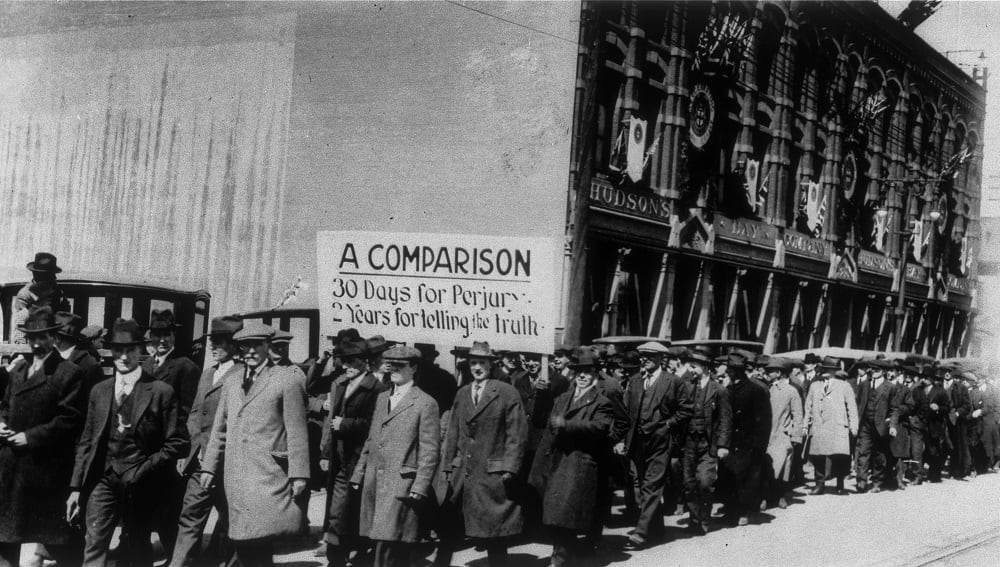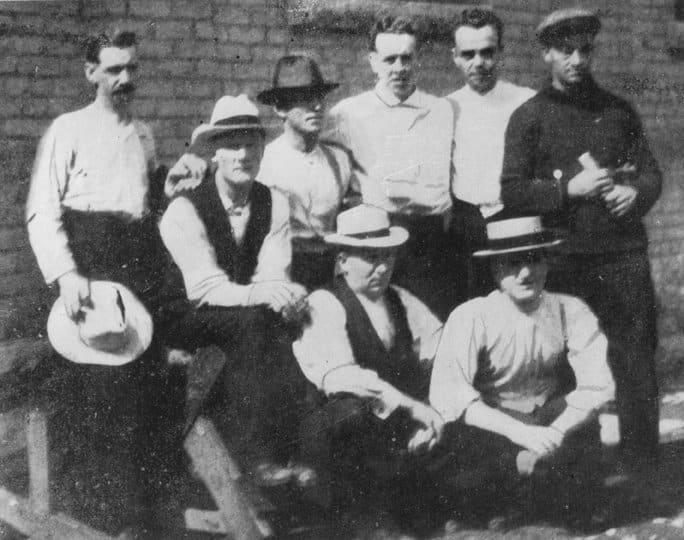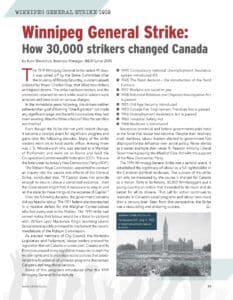

JUNE 26TH

June 26,
On this day in 1919…
The Winnipeg General Strike officially ends at 11 a.m. as business owners and government officials refuse to bargain with employees any further. Members of the Central Strike Committee meet with the premier and agree to send strikers back to work.
One week later, the provincial government appoints Judge Hugh A. Robson as head of the Royal Commission to inquire into the causes and effects of the Winnipeg General Strike. The commission holds 11 days of hearings between July 16 and September 10, 1919.
Robson’s final report highlights both the dissatisfaction of Winnipeg workers as well as a radical socialism in the city that perpetuated the labour conflict. He places blame on Rev. William Ivens and the Western Labour News for “fanning the discontent of the working class.”
Nevertheless, Robson concludes that the general strike’s main objective was not to overthrow the government, but to advance collective bargaining for labour workers and achieve better working conditions. He also states that the accused strike leaders should not be held responsible for inciting the June riots, as they operated under a peaceful mandate.

The trials of several key strike leaders take place in July on charges of seditious conspiracy and seditious libel and A.J. Andrews of the Citizens’ Committee of 1000 appears as the lead prosecutor in the first trial. Many of the men accused choose to defend themselves in court.
In September, 7000 supporters of the Central Strike Committee walk in a Labour Day parade holding signs that read “Their sentence is our sentence” and “Prison bars cannot confine ideas.” In cities across Canada, pro-strike groups raise funds to support the strike leaders’ families and cover the costs of their trials.

Robert B. Russell is sentenced to two years in Stoney Mountain Penitentiary in November, 1919. Frederick Dixon is acquitted and the charges against J.S. Woodsworth are dropped as a result. Woodsworth later would go on to help create a labour party known as the Co-operative Commonwealth Federation, the precursor for what is now Canada’s New Democratic Party.
George Armstrong, Roger Bray, A.A. Heaps, Rev. William Ivens, William Pritchard, R.J. Johns, and John Queen later go on trial in January, 1920. While being held at the Vaughan Street Jail, Armstrong, Ivens and Queen are elected to Manitoba Legislature.
Heaps is acquitted of all charges while Bray is found guilty of being a “common nuisance” and is sentenced to six months of hard labour. The other five strike leaders are found guilty and sentenced to one year in prison, despite little evidence proving a conspiracy took place.
Meanwhile, Michael Charitonoff, Oscar Schoppelrie, Moses Alamazoff, Mike Verenchuk and Sam Blumenberg, who were arrested during the police raids on June 17, are charged with violating The Immigration Act and are put on trial as well.
Verenchuk and Alamazoff are cleared of their charges but Charitonoff, Schoppelrie and Blumenberg are found guilty of committing technical violations before immigrating to Canada and are sentenced to deportation. Blumenberg voluntarily leaves Canada while Charitonoff’s appeal to stay in Canada is accepted by the government.

